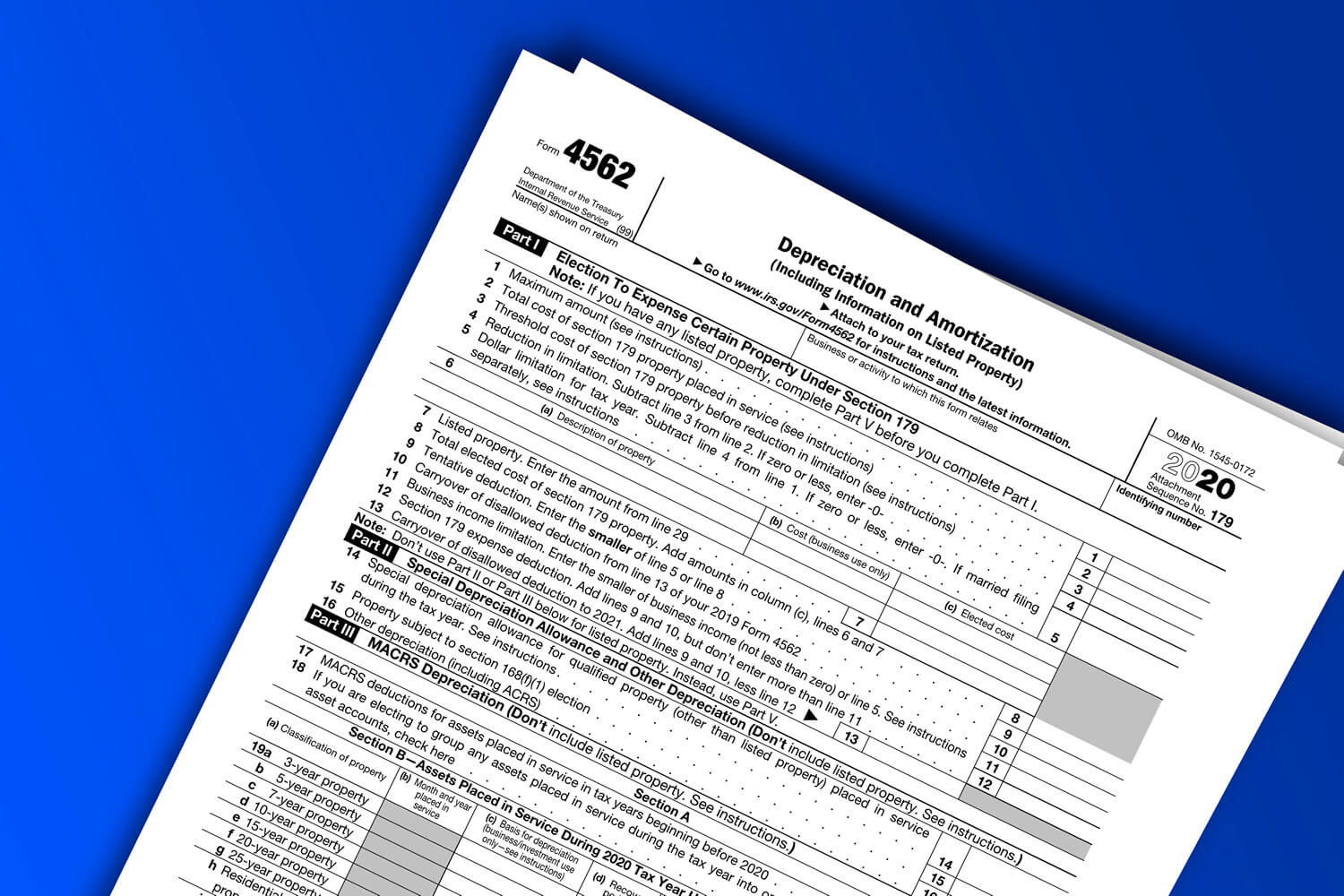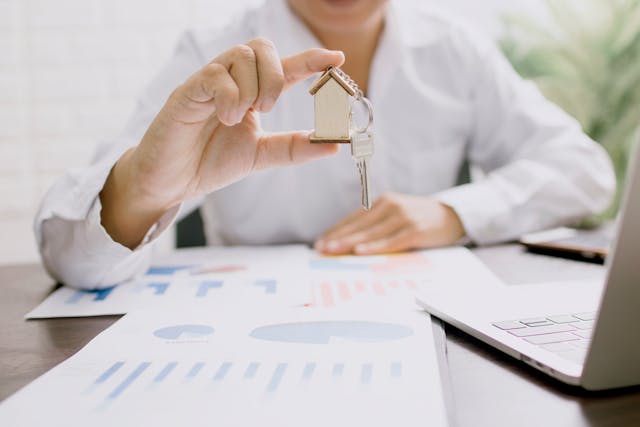How to Calculate Depreciation on a Rental Property

Key Takeaways
- Depreciation is a non-cash tax deduction that reduces your taxable income from residential rental property, even as the property appreciates in market value.
- You can depreciate the rental property and its components, but not the land it sits on. Proper categorization of assets can accelerate your depreciation deductions.
- Managing depreciation correctly and planning for recapture at sale are essential for maximizing the long-term profitability of your real estate investment.
Rental property depreciation is one of the biggest tax advantages of owning a rental property. It lets you almost fully recover the cost of your property and additions over time, reducing your taxable income each calendar year, even if your rental property is increasing in market value.
For rental property owners, this means more cash flow and potentially thousands of dollars in tax savings.
But rental property depreciation isn’t always simple. You need to know what qualifies, how to calculate it, and what happens when you eventually sell the rental property.
Done right, property depreciation can boost returns and protect your bottom line. Done wrong, it can lead to mistakes, missed depreciation deductions, or unexpected taxes.
Balanced Assets Solutions can help you navigate the complexities and make sure you’re getting the most out of your investment.
What is Property Depreciation?
Property depreciation is a way of recognizing that physical assets don’t last forever. Buildings deteriorate, roofs wear out, and plumbing eventually needs replacing. Tax systems account for this natural decline by allowing investment property owners to claim depreciation and deduct part of the asset’s cost each year.
Unlike repairs or maintenance, real estate depreciation is a non-cash expense. You don’t write a check for it each year, but you can subtract it from your rental income to lower your taxes.

For investors, this means more income to reinvest, save, or spend. It’s important to note that while real estate often appreciates in market value, the tax code looks at the physical usefulness of the real property rather than its resale value.
That’s why you can still apply depreciation to every tangible property, even as it rises in price.
Who Qualifies to Depreciate Property?
To claim real estate depreciation, four conditions generally must be met:
- Ownership: You must own the property, even if it’s mortgaged.
- Income-producing use: The property must be used in a trade, business, or investment activity, most commonly, being rented out.
- Determinable useful life: The property has to wear out, become obsolete, or lose value over time. Land doesn’t qualify because it doesn’t deteriorate.
- Property placed in service: Depreciation starts when the property placed in service, not when you buy it or during construction.
Depreciable Assets in Rental Properties
A rental property isn’t just one asset. Different components have different useful lives:
- Buildings: The core structure, including walls, roof, foundation, etc.
- Improvements: Additions like a new garage, a roof replacement, or an HVAC system.
- Appliances and furniture: Items like stoves, refrigerators, and carpeting.
- Outdoor assets: Driveways, fencing, or landscaping installations.
Separating these assets properly can allow you to depreciate some things faster than others, which means bigger deductions earlier.
Depreciation Methods
The most common system for rental properties in the United States is the Modified Accelerated Cost Recovery System (MACRS), which is the method required by the IRS. The Modified Accelerated Cost Recovery System provides two main ways to calculate real estate depreciation:
- General Depreciation System (GDS): This method spreads the deduction evenly over the property’s useful life. For example, a residential rental property depreciated over 27.5 years would produce equal annual depreciation deductions until the schedule ends. The General Depreciation System (GDS) is the standard approach for both residential rental real estate and commercial rental properties.
- Alternative Depreciation System (ADS): This method allows larger deductions in the earlier years of an asset’s useful life and smaller ones in the final years. While the Alternative Depreciation System (ADS) applies to certain additions, appliances, air conditioning, or equipment inside a rental, commercial and residential properties themselves are typically depreciated using the straight-line method under MACRS.
Most landlords will default to the General Depreciation System and straight-line depreciation for the property itself.
Accelerated methods, such as the Accelerated Cost Recovery System (ACRS), can also apply to shorter-lived components through strategies like cost segregation studies, where property components are reclassified into faster depreciation schedules. The Accelerated Cost Recovery System is used for property placed in service before 1987.
How to Calculate Depreciation
Calculating your real estate depreciation deduction requires a few essential steps. When you calculate your annual depreciation, first you need to establish the cost basis of your rental property, which includes the purchase price plus certain closing costs, sales tax, and capital improvements (such as renovations and repairs).
Next, you must calculate the cost of the residential real estate property minus the land it sits on. Finally, you apply the correct recovery period—27.5 tax years for residential rental property in the U.S. and 39 tax years for commercial.

Example: If you buy rental property for $350,000, allocate $100,000 to the land and $250,000 to the property. With a 27.5-year recovery period, your annual depreciation is $250,000 / 27.5 years = $9,091.
That $9,091 reduces your taxable rental income each year, lowering your tax bill even as the rental property’s value appreciates.
Depreciation vs. Repairs and Additions
It’s critical to distinguish between a repair and an improvement, as they are handled differently for tax purposes:
- Repairs keep the property in good working condition but don’t extend its useful life (e.g., patching a roof or fixing a leaky pipe). These can be deducted in the same year.
- Additions add value, extend useful life, or adapt the property to a new use (e.g., replacing the roof or installing a new HVAC system). These must be capitalized and depreciated over their useful life.
Misclassifying these capital improvement expenses can cause major tax issues, so keeping accurate records and consulting professionals is essential.
Recovery Periods for Rental Property Assets
Different property components depreciate on different schedules under the Modified Accelerated Cost Recovery System:
- Residential rental property: 27.5 years
- Commercial property: 39 years
- Appliances and furniture: 5 to 7 years
- Land additions (driveways, fencing, landscaping): 15 years
This breakdown matters because properly categorizing items can accelerate your deductions.
The Tax Benefits of Depreciation
Real estate depreciation is one of the main reasons real estate is considered such a tax-favored investment for most taxpayers.
By allowing you to deduct a portion of your property’s cost each year, it creates financial advantages that go beyond simply covering maintenance or operating expenses.
One of the most direct benefits is that real estate depreciation lowers taxable income.
Because a portion of your investment property’s purchase price is written off annually, the amount of income subject to tax is reduced, even though your cash flow from rent remains the same.
This means you can legally shrink your tax bill without cutting into your revenue.
Depreciation also strengthens cash flow. Since you’re paying less in taxes, more of the rent you collect stays in your pocket. This additional cash can then be reinvested to build capital improvements, used to pay down debt, or saved for future acquisitions, helping you scale your rental portfolio more effectively.

In some cases, depreciation losses can even offset other types of income. Depending on your tax situation and passive activity rules, these deductions might lower your overall tax liability beyond just your rental income.
Taken together, these benefits can significantly boost your overall return. However, they also come with trade-offs, particularly when it’s time to sell and depreciation recapture comes into play.
That’s why it’s important to enjoy the savings during ownership while also planning ahead for the eventual tax consequences when you claim depreciation.
LEARN MORE ABOUT OUR FINANCIAL SERVICES
Tracking and Reporting Depreciation
Accurate tracking and reporting of depreciation are essential for maximizing tax benefits and staying compliant with IRS rules. It’s not enough to simply know your annual deduction.
You also need to maintain detailed records and schedules that prove how you arrived at your numbers.
Here are what you need to keep:
- Purchase and improvement costs: Keep closing statements, receipts, and invoices for anything that affects the entire cost basis of your property. Improvements made after purchase, such as a new roof or upgraded plumbing, must also be added to your basis and tracked separately.
- Depreciation schedules that clearly show the yearly deductions. These schedules should include the original cost basis, the recovery period, the method used, and the cumulative depreciation taken to date. Organized schedules not only make tax reporting easier but also ensure accuracy if you’re audited.
- Adjustments: If you replace an asset, dispose of part of the property, or make improvements, these changes must be reflected in your depreciation schedule. Failing to update adjustments can result in errors that snowball over time.
Many landlords now use property management accounting software to handle this process. These tools can automate depreciation tracking, update schedules when improvements are made, and generate reports that align with Internal Revenue Service standards.
Automation helps reduce mistakes and ensures compliance without adding to your workload.
Understanding Depreciation Recapture
While depreciation saves you money year after year, it comes with a trade-off when you sell the property. This is where depreciation recapture comes in.
Depreciation recapture is the Internal Revenue Service’s way of “taking back” some of the tax benefits you enjoyed. When you sell, any depreciation deduction you claimed or were eligible to claim is subject to tax at special recapture rates, which are often higher than capital gains rates.
This is why planning ahead matters. Knowing how much depreciation deductions and how recapture will impact the sale allows you to structure deals, time improvements, or use tax deferral strategies more effectively.
Common Mistakes to Avoid
Depreciation is powerful, but errors are common. Some mistakes can cost landlords thousands of dollars in missed deductions or create problems with the IRS later. To protect your property, avoid these common pitfalls:
- Not separating land from property value: Land is not depreciable, and failing to make this distinction can lead to over-reporting depreciation.
- Confusing repairs with improvements: Misclassifying expenses can lead to inaccurate tax returns.
- Starting depreciation at the wrong time: You can only start depreciating when the property is placed in service, not when you purchase it or while renovations are ongoing.
- Ignoring first- and last-year rules: The IRS requires prorated depreciation in the year you start and stop using the property.
- Neglecting documentation: Without receipts, invoices, or appraisal records, you’ll struggle to defend your numbers during an audit.
Strategies to Maximize Your Tax Benefits
Smart landlords look beyond the basics to make the most of depreciation. Here’s what you can do to maximize its benefits:
Cost Segregation Studies
These break a property into components (e.g., lighting, flooring, plumbing) that can be depreciated over shorter lives than the property itself. This accelerates deductions and increases cash flow early on.
Bonus Depreciation and Section 179
Certain property types, like appliances, equipment, or landscaping, may qualify for immediate expensing under bonus depreciation or Section 179.
Instead of spreading deductions over years, you can deduct the full cost in the year you place the asset in service. This provides big upfront tax savings and helps free up cash flow for other property needs.
Partial Dispositions
If you replace a major component, like a roof, you may be able to write off the remaining basis of the old asset right away.
This prevents you from continuing to depreciate something you no longer own. Once the old component is written off, you begin depreciating the new one over its recovery period.
Timing Improvements Strategically
Making improvements early in ownership can maximize depreciation deductions by giving you more than one year to claim them.
In addition, certain upgrades (such as energy-efficient windows, solar panels, or green property systems) to the listed property may qualify for additional tax incentives.
By planning the timing of improvements, you can align them with favorable tax laws and boost long-term savings.
Depreciation vs. Appreciation
At first glance, depreciation and appreciation seem contradictory. Depreciation reduces your listed property’s value for tax purposes, while appreciation reflects the increase in its market value. In reality, both work in your favor.
Depreciation lowers taxes during ownership, improving cash flow. Appreciation builds wealth over time, allowing you to sell at a profit. Together, they make rental real estate one of the most attractive investments available.
The Bigger Picture for Investors and Property Managers
Depreciation is more than a tax deduction. It is a strategic tool. For real estate investors, it influences return projections, financing decisions, and exit strategies.
For property managers, it shapes financial reports, affects investor confidence, and helps with long-term business planning.

Handled carefully, depreciation can make rental properties more profitable, improve portfolio performance, and support smarter financial decisions.
How Professional Accounting Services Can Help
Handling depreciation correctly, tracking account receivables and payables, and staying compliant with tax laws can be complicated, especially as your portfolio grows.
Professional accounting services are designed to help with exactly these challenges.
Organized Financial Records and Bookkeeping
Professional accountants set up rental-specific systems to keep your finances clean and accurate.
They categorize all rental income and expenses properly, manage IRS forms, reconcile bank accounts, file tax returns, and prepare clear financial statements so you can quickly see how each property is performing.
Specialized Depreciation and Tax Compliance
Depreciation rules are complex, but accountants make sure everything is handled correctly.
They apply the right depreciation method, distinguish between repairs and improvements, and maintain accurate depreciation schedules.
Forecasting, Planning, and Strategy
Accounting services don’t just track the past; they help you plan for the future. Accounting services build financial forecasts that include depreciation, vacancies, certain term interests, and upcoming expenses. Plus, our experts find applicable tax cuts to maximize your income.
They can also run “what if” scenarios to show the impact of making improvements now versus later.
Audit Support, Reporting, and Technology
Having accurate records gives you peace of mind if questions ever arise. As a part of their services, accountants organize receipts, invoices, and documentation so you’re prepared in case of an audit.
They also generate tax-ready reports and financial statements and use accounting and depreciation software to automate calculations and reduce errors, saving you time.
Depreciation is a powerful tool for building wealth in real estate properties, but it requires careful management. Balanced Asset Solutions helps you navigate financial complexities and maximize returns.
READY TO GROW YOUR PROPERTY MANAGEMENT?

